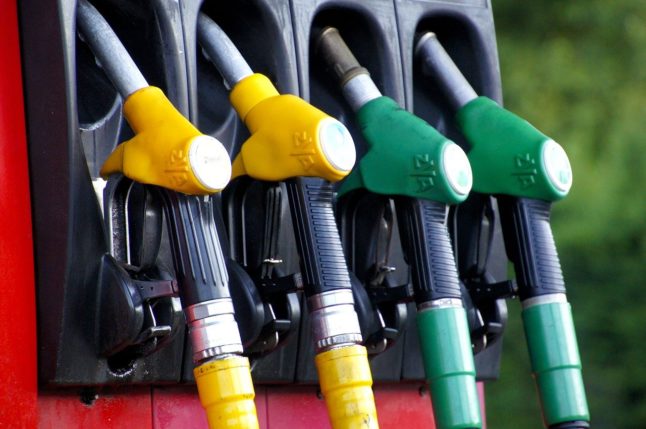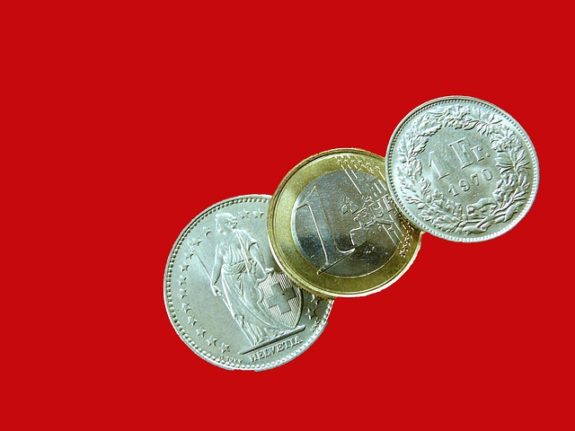Geneva area residents have been shopping in nearby France for years, as most goods are cheaper on the other side of the border.
It is not unusual to see cars with Geneva and Vaud registration plates in parking lots of French supermarkets, and this practice, known as ‘shopping tourism’, has been boosting the economies of border regions for decades.
Lately, however, ‘shopping tourism’ has spawned off a new phenomenon dubbed ‘pump tourism’, as an increasing number of cars from Switzerland fill up at French petrol stations with cheaper petrol/gasoline or diesel.
A litre of fuel in Geneva now costs 2.20 francs, while the price is €1.80 just across the border. Given the exceptionally strong franc and favourable (for the Swiss) exchange rate — €1.04 for 1 franc — buying a full tank of gasoline in Haute-Savoie makes financial sense.
READ MORE: Petrol to top CHF2 per litre in several Swiss cantons
But the cheaper pump prices in France are the result of the government fuel rebate of 18 cents per litre – as this is ultimately funded by the French taxpayer, some of the French are none too happy about Swiss motorists benefiting.
Loïc Hervé, a senator from Haute-Savoie, suggested that the Swiss are taking advantage of French state aid on the price of fuel in France.
⛽️"Nos amis #suisses profitent du bas coût de l'essence. Il faut absolument qu’on aide en priorité les français qui en ont le plus besoin, donc les français qui bossent! Avec une aide ciblée versée par l’employeur et une prise en charge par l’État."https://t.co/BJsfmSeDAr
— Loïc Hervé, Sénateur de la Haute-Savoie 🇪🇺🇫🇷 (@loichervepublic) August 3, 2022
“We absolutely have to give priority to French people. We should not be helping out the rich, the Swiss, and foreign tourists. It’s as simple as that”, Hervé, told Tribune de Genève in an interview.
Geneva State Councilor Mauro Poggia swiftly responded to Hervé’s comments, pointing out that cross-border workers from France have been benefiting for years from perks offered by Swiss employers, such as higher salaries.
READ MORE: EXPLAINED: Who can work in Switzerland but live in a neighbouring country?
“And let’s not forget that the French also fill up their cars in Geneva before returning home, and it hasn’t bothered anyone”, he said.
In fact, before Russia invaded Ukraine in February, unleaded gas was less expensive in Switzerland than in France.
The reason this is no longer the case is that France, along with Switzerland’s other neighbours, Germany, Italy, and Austria, have put in place a fuel rebate on petrol and diesel – at present this is 18 cents per litre, but it will rise to 30 cents per litre in September.
The Swiss government was considering a similar tax cut as well, but the Council of States rejected this proposal in June amid concerns about how to compensate for the lost revenue.



 Please whitelist us to continue reading.
Please whitelist us to continue reading.
Prices vary considerably here. 2.03 per litre in my area to 2.14 per litre 20 kms away.
Prices appear to vary significantly in my area, 2,03 a litre to 2,15 a litre 20 kilometres away.